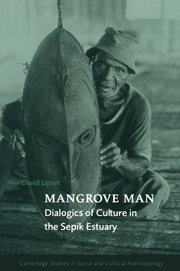Book contents
- Frontmatter
- Contents
- List of illustrations
- List of tables
- Acknowledgments
- 1 Introduction
- PART I DIALOGICS OF THE MATERNAL SCHEMA AND THE UTERINE BODY
- 2 A predicament in space
- 3 The maternal schema and the uterine body
- 4 The heraldic body
- 5 Who succeeded Ginau?
- PART II DIALOGICS OF THE MATERNAL SCHEMA AND THE COSMIC BODY OF MAN
- PART III DIALOGICS OF THE MATERNAL SCHEMA IN SOCIAL CONTROL
- Glossary
- Notes
- References
- Index
- Cambridge Studies in Social and Cultural Anthropology
4 - The heraldic body
Published online by Cambridge University Press: 05 June 2012
- Frontmatter
- Contents
- List of illustrations
- List of tables
- Acknowledgments
- 1 Introduction
- PART I DIALOGICS OF THE MATERNAL SCHEMA AND THE UTERINE BODY
- 2 A predicament in space
- 3 The maternal schema and the uterine body
- 4 The heraldic body
- 5 Who succeeded Ginau?
- PART II DIALOGICS OF THE MATERNAL SCHEMA AND THE COSMIC BODY OF MAN
- PART III DIALOGICS OF THE MATERNAL SCHEMA IN SOCIAL CONTROL
- Glossary
- Notes
- References
- Index
- Cambridge Studies in Social and Cultural Anthropology
Summary
Among the Manambu people of the middle Sepik River whom Simon Harrison studied (1989; 1990a; 1993b), the polity is differentiated by totemic privileges and appurtenances. Each clan is headed by senior, male magicians who claim and assert rights over a finite set of powers which control the cosmos. Rights to these powers do not arise directly from the production of material wealth or demographic success but from a stock of personal names Manambu leaders give infant children. Babies given the same name cause disputes. In public tests, orators then contest genealogical knowledge (cf. Valeri 1985: 155ff). At the periphery of their debates – carried on in stage-whispers – defiant women dance angrily and fight among themselves. The loser must rename his grandchild. The point Harrison makes of this image is that it illustrates what he calls a realist but not a nominalist folk model of Melanesian inequality (1990a). According to the former, society is a totality of relationships that transcends the existence of its citizens. According to the latter, society is a contingent phenomenon that emerges out of political activity. In the western highlands, to take Harrison's example of the latter model, the clan is said to be composed of consubstantial entities, goods and persons, which men produce and deploy in order to make the claim that the polity “grows” on account of what they but not women do (see especially Meigs 1976; Biersack 1982; A. Strathern 1974).
- Type
- Chapter
- Information
- Mangrove ManDialogics of Culture in the Sepik Estuary, pp. 79 - 108Publisher: Cambridge University PressPrint publication year: 1997

